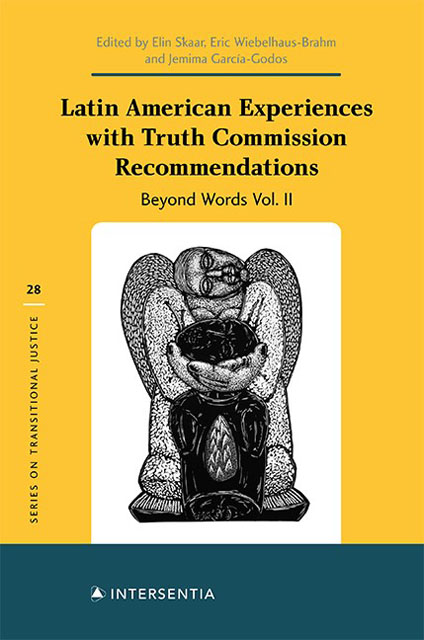Conclusion
Published online by Cambridge University Press: 19 November 2022
Summary
Few other fact-finding panels have harnessed the energy and imagination of scholars and activists interested in making the world a better place as much as truth commissions. Since Argentina's National Commission on the Disappearance of Persons submitted its final report in 1984, much has been said about what truth commissions can do, should do, and have been able to do. For skeptics, the emphasis on “truth” – understood in the context of political transitions from authoritarian rule and/or internal armed conflict as the documentation of past human rights violations, and drafting a list of victims (but not necessarily the victimizers) – amounts to little more than the denial of justice for victims and their relatives. At best, truth commissions fail to produce the hoped-for impact (Snyder and Vinjamuri 2003; Mendeloff 2004). Countering truth commission skeptics, however, other observers have pointed out that despite (or perhaps, thanks to) their lack of authority to punish off enders, truth commissions may expand the horizon in terms of how societies understand justice, recognition, and reconciliation. Far from being a tool of injustice, it is hoped, truth commissions can serve as the most appropriate mechanism to promote restorative justice without sacrificing retribution altogether, while also helping affected individuals to narrate their experiences, promoting an honest and reflective engagement with past wrongs, and ultimately fostering a culture of peace and respect for human rights (Minow 1998; Zalaquett 1991). Nuanced analyses assess whether and how truth commissions produce impact by going beyond the justice/injustice dichotomy (Olsen, Payne, and Reiter 2010; Sikkink and Kim 2013; Wiebelhaus-Brahm 2010).
In what ways does a truth commission produce impact? The process matters: victims may feel a sense of closure through narrating their experiences; commissioners may extend recognition of individual pain and suff ering by simply listening to, and affirming, victims’ narratives; perpetrators may participate in this process by confessing to their crimes (though admittedly, massive confessions are the exception rather than the norm around the world); and ultimately, it is hoped, the existence of a panel tasked to uncover and publicize human rights violations forces the entire society to reflect on past wrongs. Ever since South Africa's Truth and Reconciliation Commission made headlines around the world in the mid-1990s wiThits public hearings featuring highly emotional testimonies from victims and confessions from perpetrators, a participatory truth commission process aimed at reconciling former adversaries has been praised for its capacity for changing politics and society performatively – though this optimistic view has not gone uncontested, either.
- Type
- Chapter
- Information
- Latin American Experiences with Truth Commission Recommendations: Beyond Words Vol. II , pp. 485 - 500Publisher: IntersentiaPrint publication year: 2022



